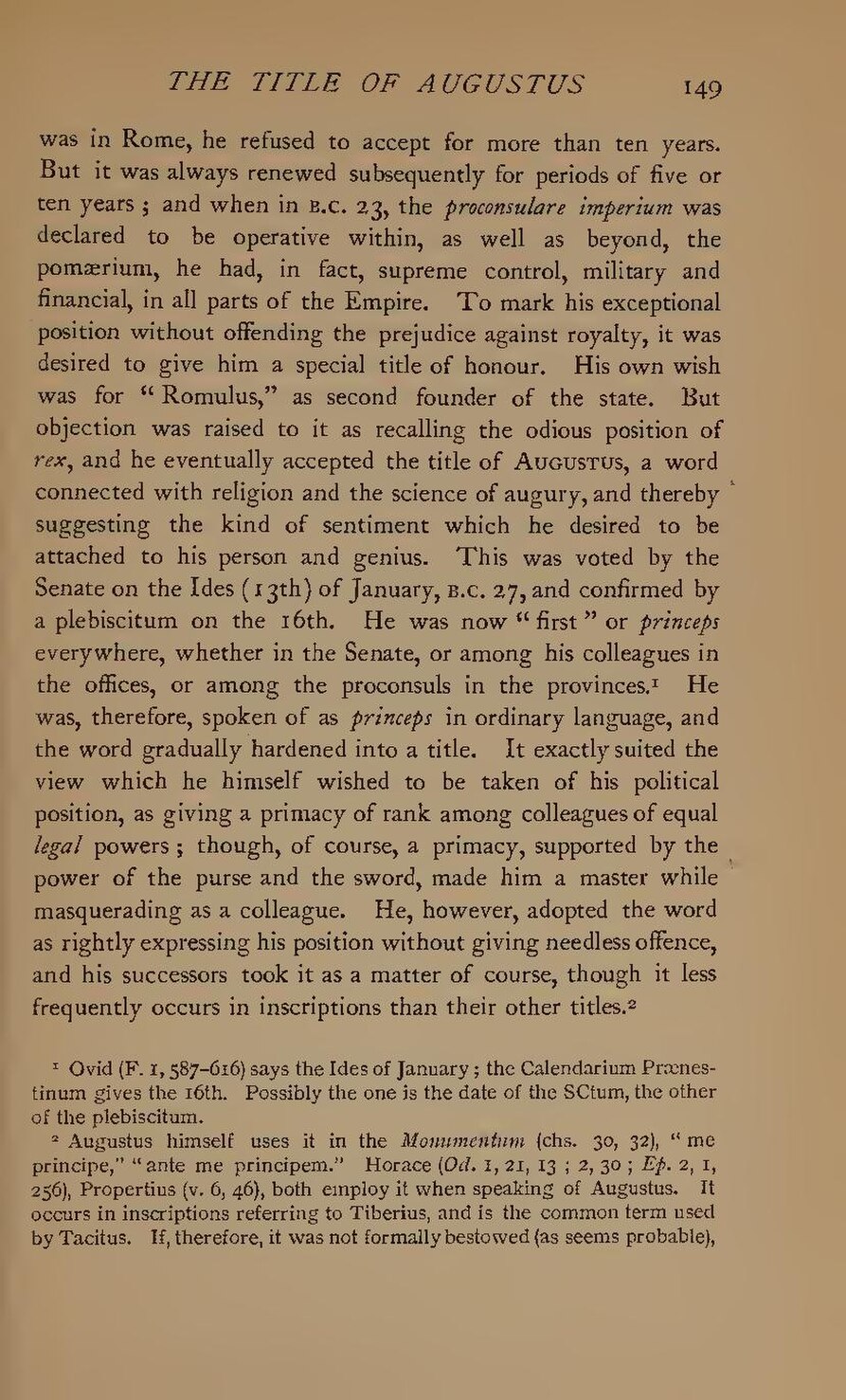was in Rome, he refused to accept for more than ten years. But it was always renewed subsequently for periods of five or ten years; and when in B.C. 23, the proconsulare imperium was declared to be operative within, as well as beyond, the pomærium, he had, in fact, supreme control, military and financial, in all parts of the Empire. To mark his exceptional position without offending the prejudice against royalty, it was desired to give him a special title of honour. His own wish was for "Romulus," as second founder of the state. But objection was raised to it as recalling the odious position of rex, and he eventually accepted the title of Augustus, a word connected with religion and the science of augury, and thereby suggesting the kind of sentiment which he desired to be attached to his person and genius. This was voted by the Senate on the Ides (13th) of January, B.C. 27, and confirmed by a plebiscitum on the 16th. He was now "first" or princeps everywhere, whether in the Senate, or among his colleagues in the offices, or among the proconsuls in the provinces.[1] He was, therefore, spoken of as princeps in ordinary language, and the word gradually hardened into a title. It exactly suited the view which he himself wished to be taken of his political position, as giving a primacy of rank among colleagues of equal legal powers; though, of course, a primacy, supported by the power of the purse and the sword, made him a master while masquerading as a colleague. He, however, adopted the word as rightly expressing his position without giving needless offence, and his successors took it as a matter of course, though it less frequently occurs in inscriptions than their other titles.[2]
- ↑ Ovid (F. 1, 587-616) says the Ides of January; the Calendarium Prænestinum gives the 16th. Possibly the one is the date of the SCtum, the other of the plebiscitum.
- ↑ Augustus himself uses it in the Monumentum (chs. 30, 32), principe," "ante me principem." Horace (Od. 1, 21, 13; 2, 30; Ep. 2, 1, 256), Propertius (v. 6, 46), both employ it when speaking of Augustus. It occurs in inscriptions referring to Tiberius, and is the common term used by Tacitus. If, therefore, it was not formally bestowed (as seems probable),
